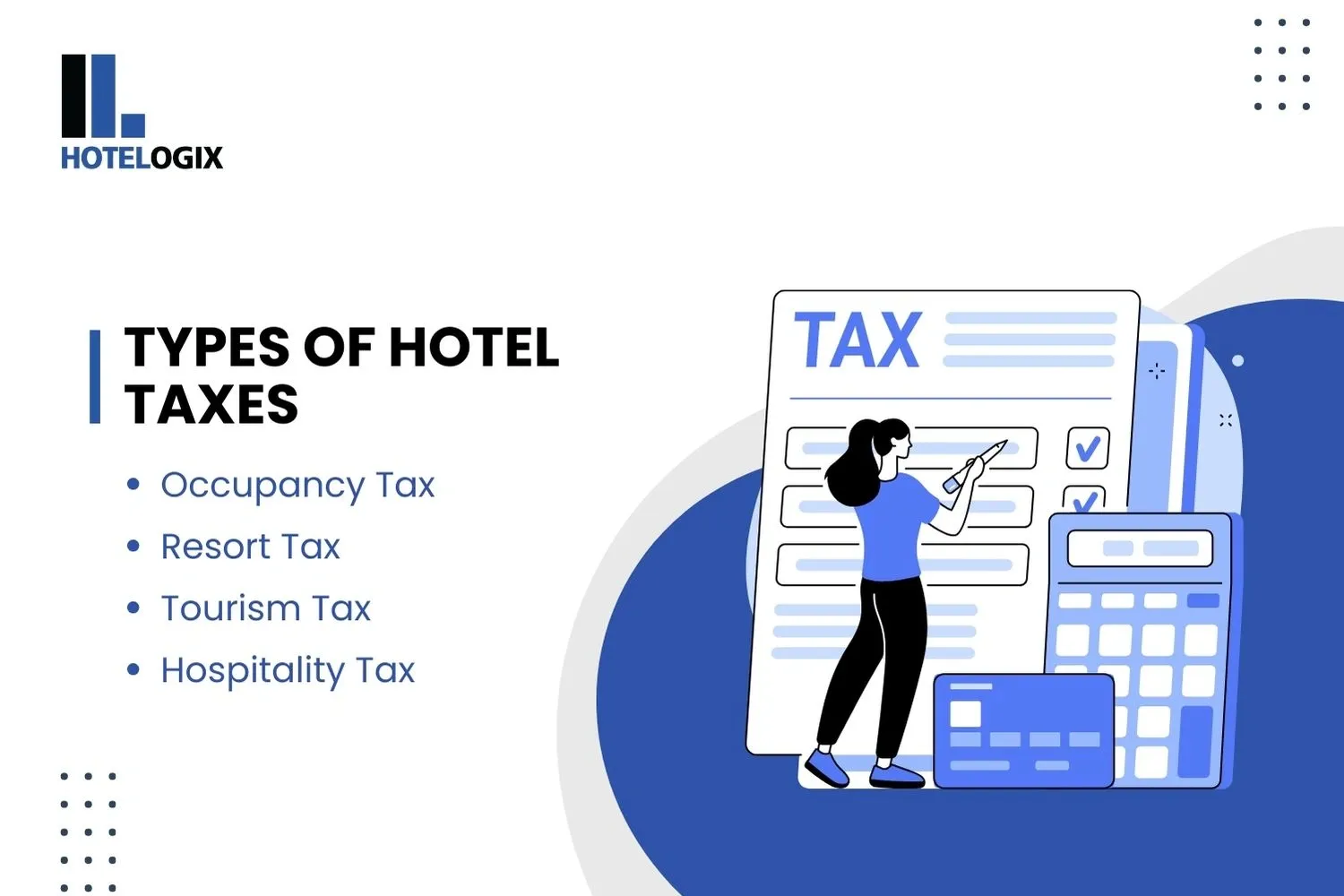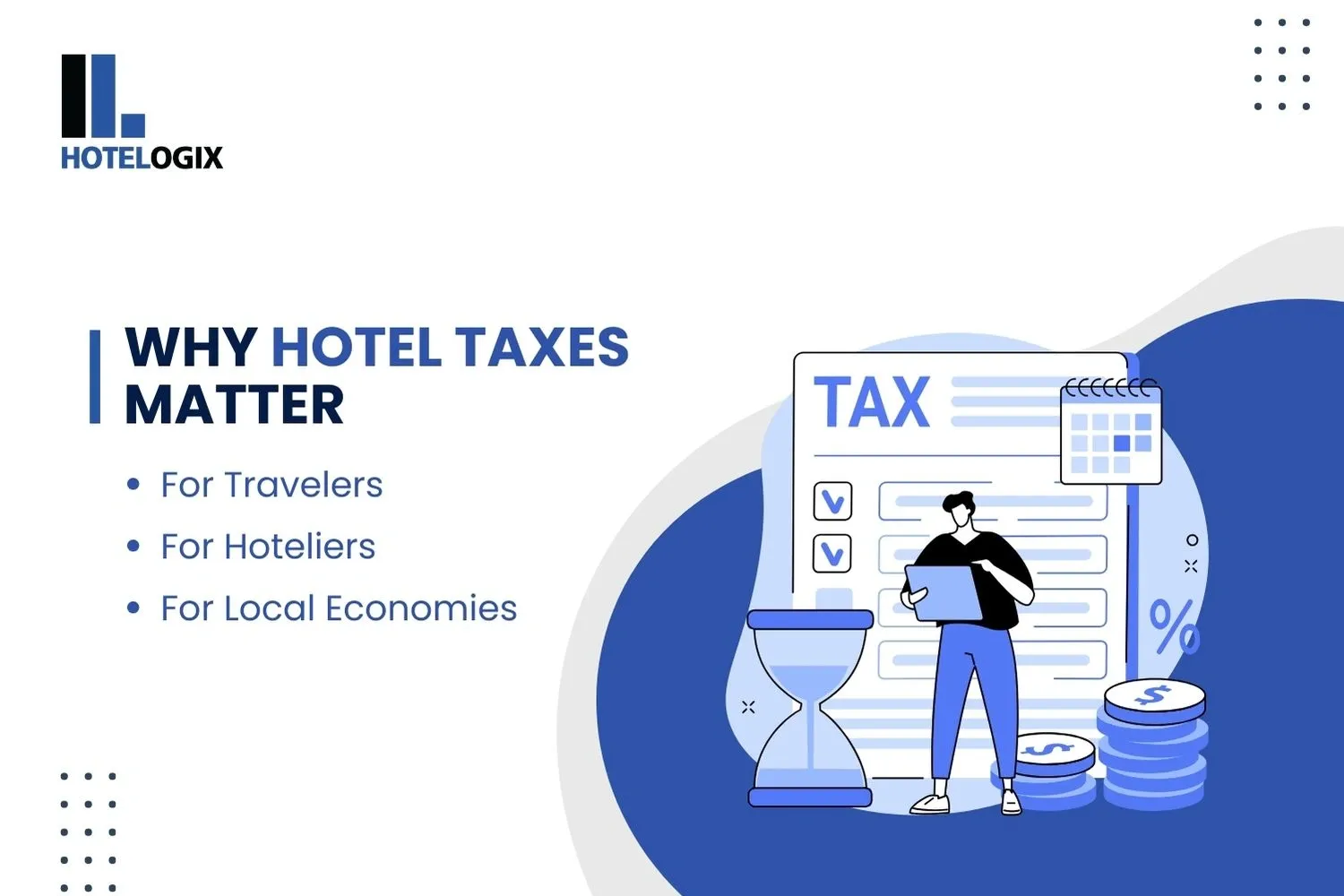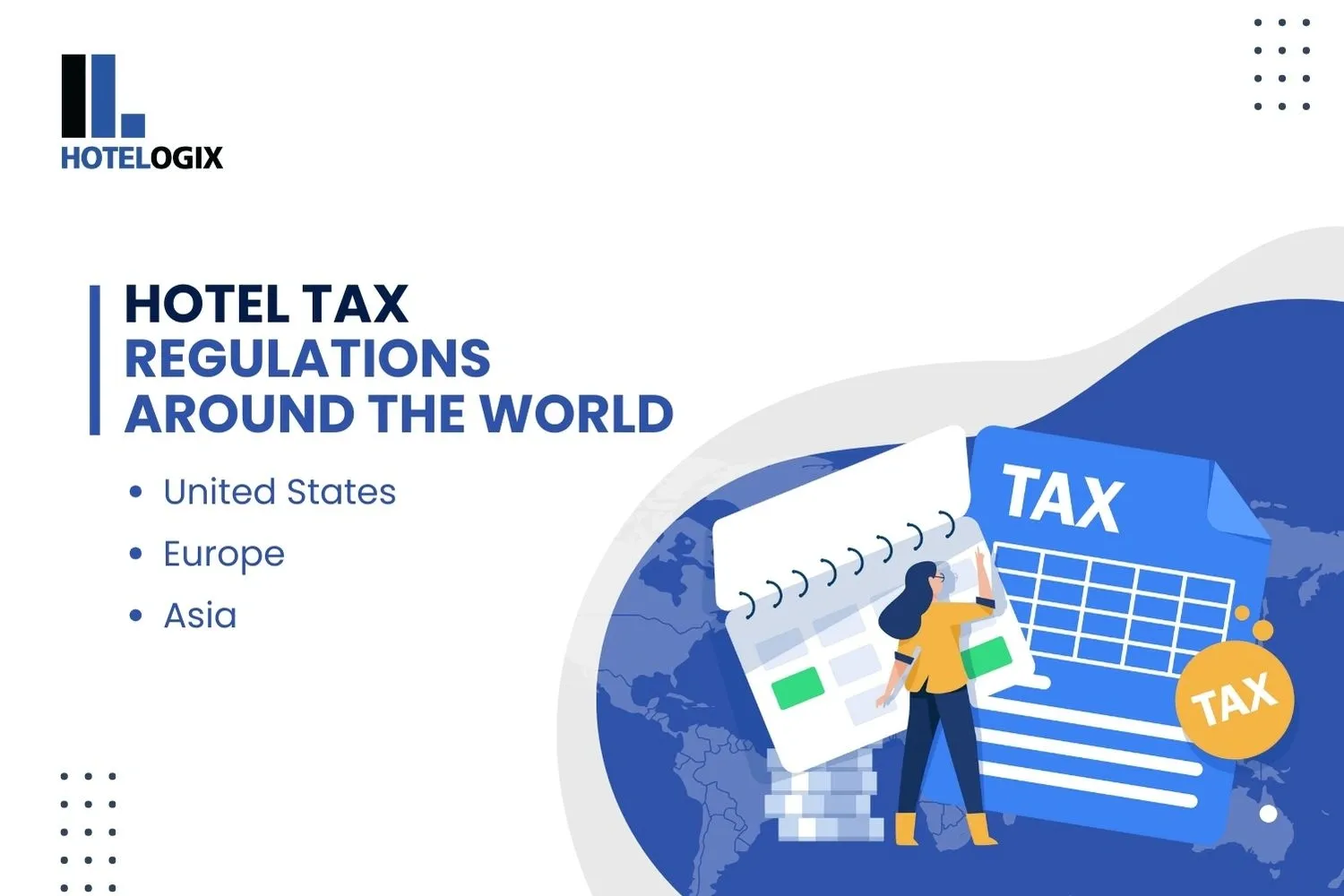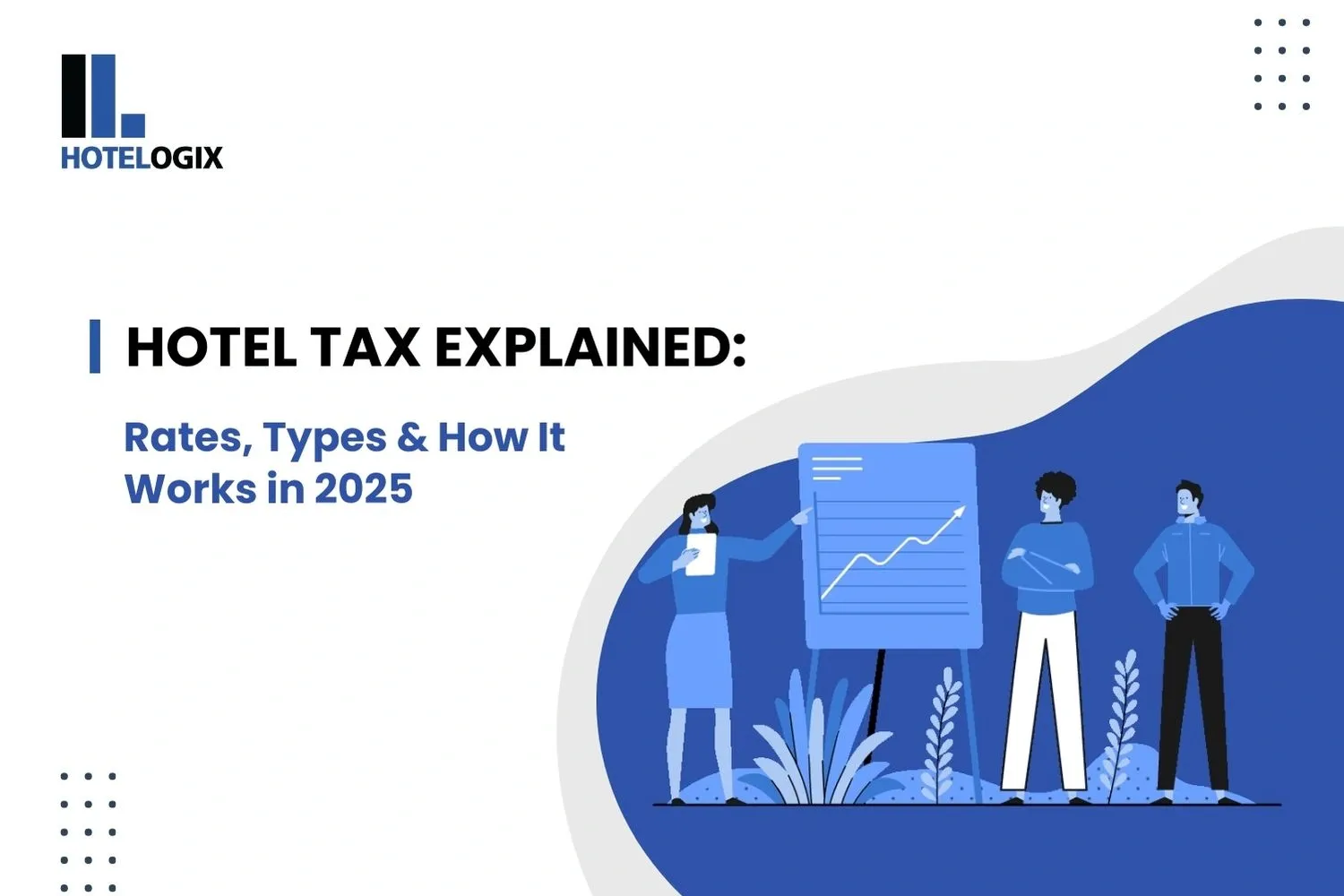Did you know that hotel taxes contribute billions of dollars annually to local economies, funding everything from infrastructure projects to tourism promotion? For travelers, these taxes can significantly impact the overall cost of a stay, while for hoteliers, understanding and complying with these taxes is critical to avoid penalties. In this comprehensive guide, we will explore hotel taxes in depth, covering their definitions, types, calculations, and regulations worldwide.
What Is Hotel Tax?
Hotel tax, often referred to as occupancy tax, lodging tax, or tourism tax, is a fee imposed on guests staying at hotels, motels, or other lodging facilities. This tax is typically calculated as a percentage of the room rate and is collected by the property on behalf of local or state governments.
Purpose of Hotel Tax
The primary purpose of hotel tax is to generate revenue for local governments. This revenue supports various initiatives, including:
- Funding Local Infrastructure Projects: Hotel taxes help maintain and improve local infrastructure, such as roads, public transportation, and utilities, which are essential for both residents and visitors.
- Supporting Tourism Promotion: Many local governments use revenue from hotel taxes to fund marketing campaigns that attract tourists, which in turn boosts the local economy.
- Contributing to Community Development: Hotel taxes often finance community projects, parks, and cultural events, enhancing the quality of life for residents and the visitor experience.
Latest Facts and Statistics on Hotel Taxes
According to the 2024 HVS Lodging Tax Report, the average weekly earnings of hotel and motel employees increased by approximately 25% from July 2019 to July 2024, which has impacted operating costs and subsequently affected lodging tax revenue growth.
Direct state and local tax revenue generated from hotels in the United States reached $52.38 billion in 2023, which is more than twenty billion dollars higher than in 2020 when the hotel industry was severely affected by the COVID-19 pandemic. This revenue is forecast to increase to approximately $54.36 billion in 2024.
In some regions, hotel occupancy tax collections are showing remarkable growth. For instance, in Bryan, Texas, Hotel Occupancy Tax (HOT) collections experienced a 19.4% year-over-year increase in 2024, with total collections amounting to $2.9 million. Additionally, short-term rental revenue in the same area saw an even more impressive rise of 36.2% year-over-year.
Types of Hotel Taxes
Understanding the different types of hotel taxes is crucial for both travelers and hoteliers. Here are the most common types:

1. Occupancy Tax
Occupancy tax is perhaps the most common type of hotel tax, applied to the cost of a hotel room. It is usually a percentage of the room rate and varies by location.
Example: In New York City, the occupancy tax is 5.875% of the room rate, plus a flat fee of $2 per room per night.
2. Resort Tax
Resort tax is specifically applied in tourist-heavy areas, particularly resorts. This tax helps fund local amenities and services that enhance the visitor experience, such as beach maintenance, lifeguard services, and recreational facilities.
3. Tourism Tax
Tourism tax is designed to promote tourism within a region. The revenue generated from this tax is typically used for marketing initiatives, tourism development projects, and events that attract visitors.
4. Hospitality Tax
Hospitality tax encompasses a broader scope, which may include not just lodging but also dining, entertainment, and other services related to the hospitality industry. This tax is often levied in cities with a high concentration of hotels, restaurants, and attractions.
How Hotel Taxes Work
Hotel taxes are typically added to the base room rate and differ depending on the property's location. Here's a closer look at how they function:
Calculating Hotel Taxes
The calculation of hotel taxes is generally straightforward. Here's a step-by-step guide:
- Identify the Applicable Tax Rate: Let's say the hotel tax rate is 10%.
- Calculate the Tax Amount: Multiply the room rate by the tax rate: $150 × 0.10 = $15.
- Total Cost: Add the tax to the room rate: $150 + $15 = $165.
Example of Hotel Tax Rates
- United States: Hotel tax rates can vary significantly from state to state. For instance, in Las Vegas, the hotel tax rate is 13.38%, while in Los Angeles, it is around 14%.
- Europe: Countries like France and Italy charge a "city tax" or "tourist tax" that can range from €1 to €5 per night, depending on the city and the type of accommodation.
- Asia: In Japan, hotel taxes known as "bed tax" may be included in the room rate, typically around 10% in major cities like Tokyo and Kyoto.
Why Hotel Taxes Matter

For Travelers
For travelers, hotel taxes can significantly increase the total cost of a stay. Understanding these taxes helps travelers budget more effectively and avoid surprises when they check out.
Example: A traveler planning a weekend getaway should factor in hotel taxes when comparing prices for accommodations. If a hotel room appears to be $100 per night, but the tax is 12%, the total cost will actually be $112 per night.
For Hoteliers
For hoteliers, accurate tax collection and compliance are vital. Failing to collect or remit hotel taxes can lead to substantial fines and legal issues. Hoteliers should maintain clear records of all transactions and be well-versed in the local tax laws to ensure compliance.
Tip: Implementing automated systems for tax calculations can mitigate the risk of errors and streamline the process.
For Local Economies
Hotel taxes play a crucial role in supporting local economies. The revenue generated from these taxes is often reinvested into community projects, infrastructure, and services that benefit both residents and visitors.
For example, a city that uses hotel tax revenue to improve public parks or promote local events not only enhances the visitor experience but also increases the overall attractiveness of the area to future tourists.
Simplifying Tax Management with Hotelogix
Hotelogix's Tax Management capabilities allow hotels to configure multiple tax structures, including per-person tax, slab taxes, and even tax-on-tax scenarios. The system also supports the implementation of Goods and Services Tax (GST), making it particularly valuable for properties operating in regions with complex tax structures. The automated tax calculations minimize human error and save valuable time for staff.
Additionally, Hotelogix generates detailed tax reports that provide insights into tax collection and remittance patterns, enabling hotels to make data-driven decisions. With real-time data synchronization across all hotel operations, from the front desk to distribution channels, Hotelogix ensures that the correct taxes are applied consistently across all guest transactions.
How to Calculate Hotel Tax
Calculating hotel tax can seem daunting, but it's quite simple when broken down into steps.
Step-by-Step Guide
- Identify the Room Rate: Start with the base price of the hotel room (e.g., $200).
- Find the Local Tax Rate: Determine the applicable hotel tax rate (e.g., 9%).
- Calculate the Tax:
javascript
Copy
Tax Amount = Room Rate × Tax Rate
$200 × 0.09 = $18
- Calculate Total Cost:
javascript
Copy
Total Cost = Room Rate + Tax Amount
$200 + $18 = $218
Tools for Calculation
For easier calculations, consider using online hotel tax calculators. These tools can automate the process, ensuring you account for any local nuances in tax regulations.
Common Challenges with Hotel Taxes
Navigating hotel taxes can present several challenges for both travelers and hoteliers:
1. Varying Tax Rates
One of the most significant challenges is the variation in tax rates across different regions. What may be a reasonable rate in one city could be exorbitant in another. This inconsistency can confuse travelers and complicate compliance for hoteliers.
2. Misunderstanding Regulations
Many travelers and hoteliers may not fully understand the intricacies of local tax laws. This lack of clarity can lead to miscalculations and, ultimately, financial penalties.
3. Non-Compliance Penalties
Failure to comply with hotel tax regulations can result in hefty fines and legal repercussions. Hoteliers must ensure they are collecting the correct amount and remitting it to the appropriate authorities.
Tips for Overcoming Challenges
- Stay Informed: Regularly check local government websites for updates on tax laws.
- Educate Staff: Ensure that hotel staff are knowledgeable about tax regulations and can assist guests with any questions or concerns.
- Use Technology: Consider using property management systems (PMS) that include tax calculation features to streamline the process.
Hotel Tax Regulations Around the World

Hotel tax regulations can differ significantly from one country to another. Here are some key highlights:
United States
In the U.S., hotel tax rates can vary widely by state and city. For example, in New York City, the total hotel tax is approximately 14.75%, while in Chicago it can reach 17.4%. Hoteliers must be familiar with the rates applicable to their specific locations.
Europe
European countries often impose a "city tax" or "tourist tax" on hotel stays. In cities like Barcelona and Amsterdam, this tax can range from €1 to €4 per person per night, depending on the accommodation type.
Asia
In Japan, hotel taxes are integrated into the overall cost of the stay. In cities like Tokyo, the local accommodation tax is around 200 yen per night for stays under 10,000 yen.
It's essential for travelers and hoteliers alike to understand these differences to ensure compliance and to generate accurate reports on tax collection and distribution for proper financial management.
FAQs About Hotel Taxes
Q: What is the difference between hotel tax and occupancy tax?
A: They are often used interchangeably; however, occupancy tax specifically refers to taxes levied on lodging, while hotel tax can encompass various fees related to hotel stays.
Q: Are hotel taxes refundable?
A: In most cases, hotel taxes are non-refundable. However, some exemptions may apply for long-term stays or specific traveler categories.
Q: How do I find the hotel tax rate for my area?
A: You can check local government websites or use online tax calculators to find the applicable hotel tax rates in your area.
Conclusion
Hotel taxes are an integral part of the hospitality industry, impacting travelers, hoteliers, and local economies alike. Understanding how these taxes work is essential for effective budgeting and compliance.
By staying informed and utilizing available resources, both travelers and hoteliers can navigate the complexities of hotel taxes with confidence.
Simplify your tax calculations with our free hotel tax calculator today! Stay informed and make the most of your travel experiences or hotel management practices.


